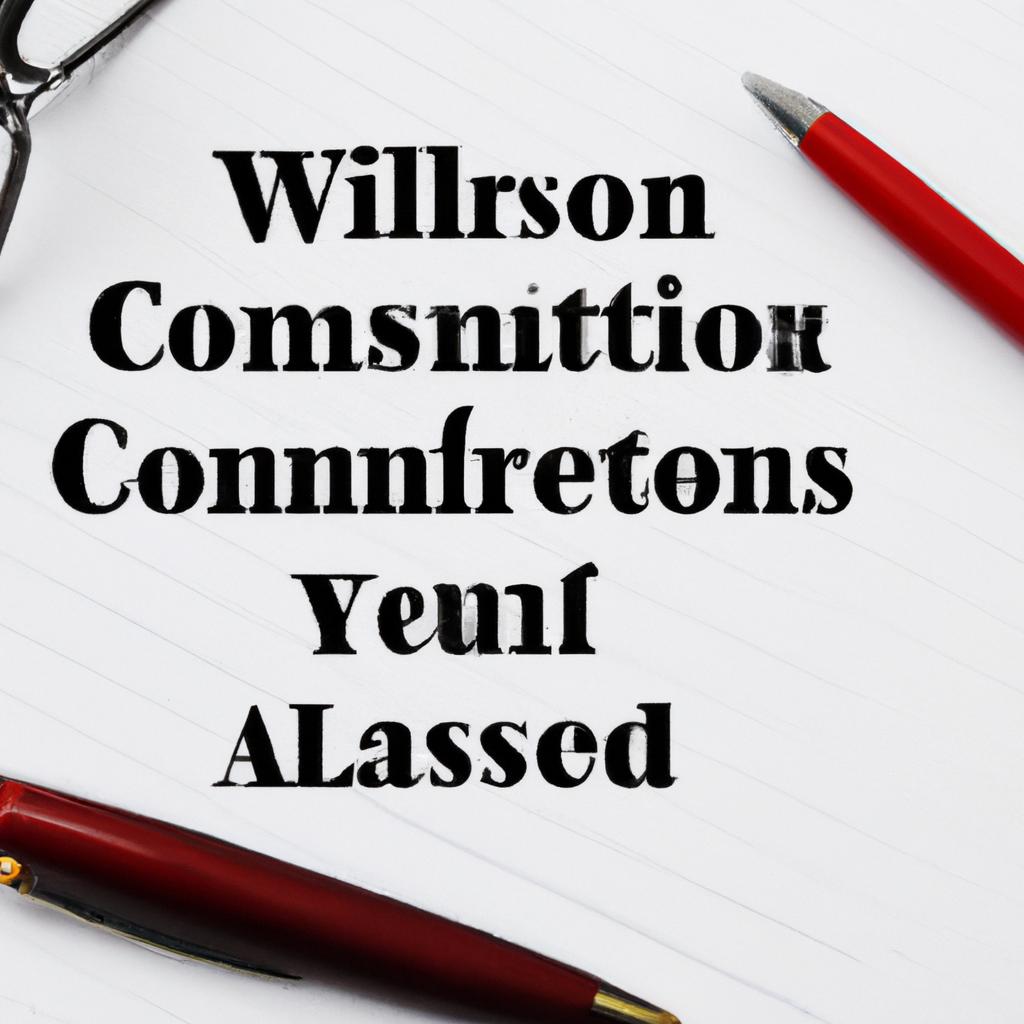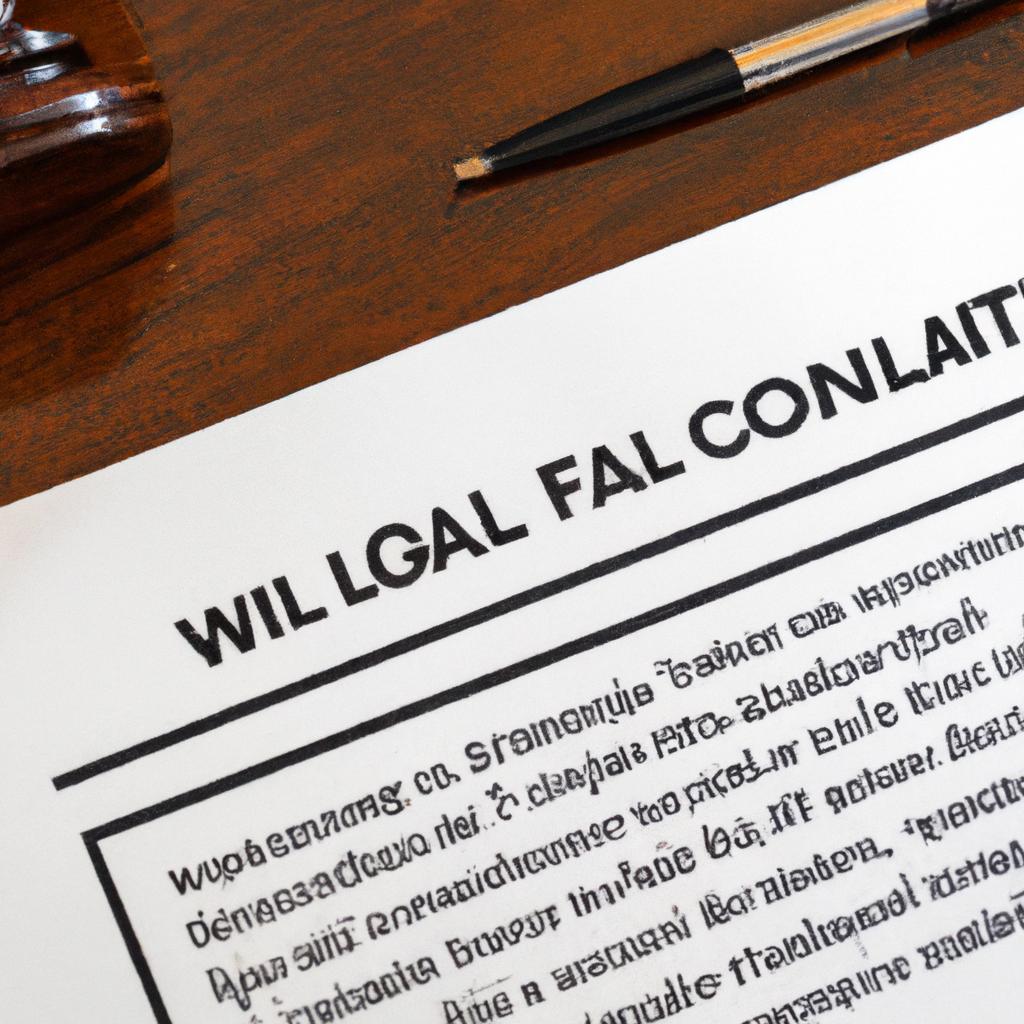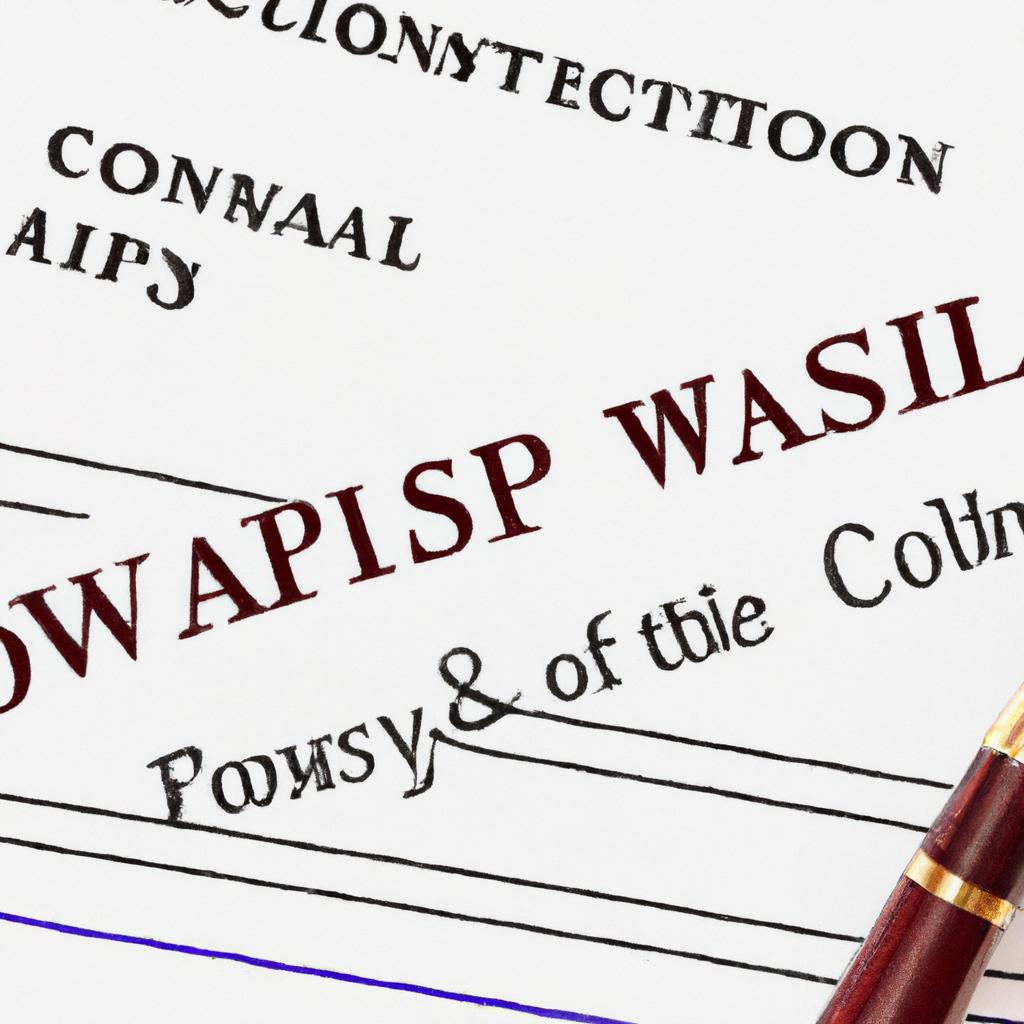As seasoned professionals in the realm of estate planning and probate law, we at Morgan Legal Group often encounter clients facing the challenging decision of contesting a loved one’s will. While this process can be complex and emotionally charged, it is essential to understand the circumstances under which one may legitimately contest a will. In this article, we will explore the key factors to consider and the proper protocol to follow when contemplating contesting a will.
Grounds for Contesting a Will: Understanding Valid Reasons for Challenging a Will
Challenging a will is a serious matter that should not be taken lightly. There are specific grounds on which a will can be contested, and it is important to understand these valid reasons before taking any legal action. One common reason for contesting a will is if the document was not properly executed. For a will to be valid, it must meet certain legal requirements, such as being signed by the testator and witnesses according to state laws.
Another valid reason for contesting a will is if there is evidence of undue influence or coercion. If it can be proven that the testator was forced or manipulated into creating or changing their will, it may be deemed invalid. Additionally, if there are concerns about the mental capacity of the testator at the time the will was created, this could also be grounds for contesting the document.

Legal Requirements for Contesting a Will: Key Factors to Consider Before Initiating a Challenge
Before contesting a will, it is essential to understand the key legal requirements that must be met in order to initiate a successful challenge. One important factor to consider is the validity of the will itself. A will may be contested if it is believed to be invalid due to reasons such as lack of testamentary capacity, undue influence, fraud, or improper execution.
Additionally, it is crucial to be aware of the time limitations for contesting a will. In New York, for example, a will must be contested within a specific time frame, typically within three years of the date of the testator’s death. Failure to meet this deadline may result in the dismissal of the challenge. It is important to consult with an experienced attorney to ensure that all legal requirements are met before initiating a will challenge.

Timelines and Procedures for Contesting a Will: Navigating the Complex Legal Process
When considering contesting a will, it is crucial to be aware of the timelines and procedures involved in navigating this complex legal process. Understanding the specific circumstances under which you can contest a will is essential to determine the validity of your claim. Below, we outline the key factors to consider when deciding to contest a will:
- Capacity: One of the primary grounds for contesting a will is claiming that the testator lacked the mental capacity to create a valid will. If you believe that the individual was not of sound mind at the time the will was created, you may have a valid reason to contest.
- Undue Influence: Contesting a will on the basis of undue influence involves proving that the testator was coerced or manipulated into making certain provisions in the will. If you suspect that someone exerted undue influence over the testator, you may have grounds for contesting the will.

Seeking Legal Counsel: Why it is Essential to Hire an Experienced Probate Attorney to Contest a Will
Contesting a will is a complex legal process that requires the expertise of an experienced probate attorney. When it comes to challenging the validity of a will, having a skilled lawyer on your side can make all the difference in the outcome of your case. Here are some key reasons why it is essential to hire a knowledgeable probate attorney to contest a will:
- Legal Expertise: An experienced probate attorney will have a deep understanding of estate laws and probate court procedures, ensuring that your case is handled effectively and efficiently.
- Strategic Guidance: A skilled lawyer will provide you with strategic guidance on how to approach your case, including determining the best legal arguments and evidence to support your claim.
| Reason | Importance |
|---|---|
| Knowledge of estate laws | Crucial for building a strong case |
| Strategic guidance | Helps in navigating the complex legal process |
Q&A
Q: When can you contest a will?
A: You can contest a will if you believe there are grounds to challenge its validity.
Q: What are some common reasons for contesting a will?
A: Common reasons include lack of capacity, undue influence, fraud, and improper execution.
Q: Who can contest a will?
A: Generally, beneficiaries, heirs, and creditors who have standing can contest a will.
Q: What is the process for contesting a will?
A: The process for contesting a will typically involves filing a petition with the court, providing evidence to support your claim, and attending a hearing.
Q: Is there a time limit for contesting a will?
A: Yes, there is typically a limited window of time in which you can contest a will, so it is important to act promptly if you have concerns.
Q: What happens if a will is successfully contested?
A: If a will is successfully contested, the court may invalidate all or part of the document, and a different distribution of assets may be implemented.
Q: Are there any risks involved in contesting a will?
A: Contesting a will can be a lengthy and costly process, and there is no guarantee of success. It’s important to weigh the potential risks and benefits before proceeding.
To Wrap It Up
In conclusion, contesting a will can be a complex and emotional process. It is important to carefully consider your reasons for contesting a will and seek legal advice to understand your rights and options. Remember, time limits apply for contesting a will, so it is essential to act promptly if you believe you have valid grounds for a challenge. Ultimately, the decision to contest a will should not be taken lightly and should be approached with careful consideration and guidance.

